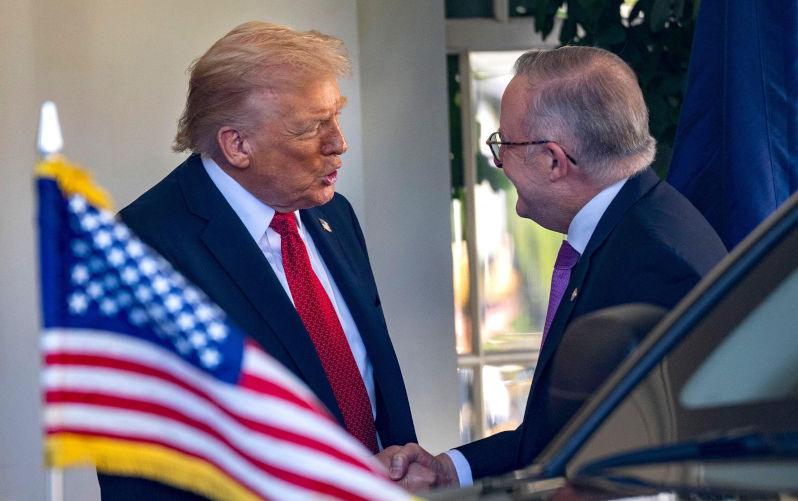From Whitlam to AUKUS: Sovereignty silenced
November 20, 2025
When governor-general Sir John Kerr dismissed Gough Whitlam on 11 November 1975, Australia lost more than a government. It lost a measure of its independence a loss that still shadows our politics half a century later.
A government that dared to act independently
The Whitlam Government (1972-75) did what reformist governments are supposed to do: legislate boldly and re-imagine Australia’s place in the world. It ended conscription, withdrew troops from Vietnam, recognised the People’s Republic of China and drafted the first national Aboriginal land-rights policy. It opposed nuclear testing and spoke of a non-aligned foreign policy.
Whitlam believed no foreign power should dictate Australia’s economic or security decisions. He questioned the secrecy surrounding the US intelligence base at Pine Gap, demanded to know the names of CIA operatives in Australia and insisted that his own staff not be vetted by ASIO. For Washington, then deep in Cold-War paranoia, such independence bordered on insubordination.
The foreign hand
The involvement of the US in Whitlam’s downfall is no longer speculation. In 1977, president Jimmy Carter sent his envoy Warren Christopher to apologise to Whitlam. Recorded in Hansard, Christopher conveyed that the US “would never again interfere in the domestic political processes in Australia".
The apology came too late. By then, the damage was done to Whitlam, and to Australian sovereignty.
During the early 1970s, Whitlam’s ministers had publicly condemned US bombing in Vietnam. The CIA was furious. Former CIA officer Victor Marchetti later told journalist John Pilger that Whitlam’s threat to challenge Pine Gap’s operations caused “apoplexy in the White House … and a kind of Chilean-style coup was set in motion".
Kerr, meanwhile, had a history of association with CIA-front organisations such as the Congress for Cultural Freedom and LawAsia. American intelligence contractor Christopher Boyce claimed the CIA referred to him as “our man Kerr". In the final days before the Dismissal, defence officials warned Kerr that Whitlam posed “the greatest risk to the nation’s security there has ever been". On 11 November 1975, hours before Whitlam was to expose CIA activity in Parliament, Kerr invoked the Crown’s “reserve powers” and ended an elected government.
The long chill
Whitlam’s removal was meant as a lesson and it worked. Labor leaders ever since have kept their distance from true foreign-policy independence. From Bob Hawke’s revival of the ANZUS orthodoxy to Albanese’s embrace of AUKUS, Labor has lived under an unspoken constraint: don’t challenge the alliance.
The cost has been quiet but cumulative. Pine Gap has grown into one of the world’s most sophisticated eavesdropping posts, integral to US drone warfare and global surveillance. Northern Australia hosts a string of American military facilities and rotational forces. The AUKUS submarine and missile programs lock us into decades of dependency, both financial and strategic, with little public scrutiny and even less parliamentary oversight.
What Whitlam tried to do — place Australia’s interests first within an alliance of equals — has become almost unimaginable in Canberra’s current political culture.
The question that still hangs
Eleven days before his dismissal, at the Australian National University, Whitlam offered a warning that reads today as prophecy:
“The question is whether any duly elected reformist government will be allowed to govern in the future. What is at stake is whether the people who seek change and reform are ever again to have confidence that it can be achieved through the normal parliamentary processes.”
Fifty years on, that question still hangs in the air. Could any Australian leader today call for full disclosure of Pine Gap’s operations, or demand limits on US troop rotations, and survive politically? We have internalised the limits of dissent.
Why this history matters
Revisiting 1975 is not nostalgia. It is a reminder that democracy without sovereignty is hollow. A foreign power’s ability to shape or terminate a government’s tenure, whether through direct interference or embedded dependency, remains a constitutional and moral wound.
The Dismissal marked the point at which Australia’s national security state fused with that of the US. Half a century later, under AUKUS, the process is nearly complete. Submarines, surveillance and secrecy have replaced the language of independence that once animated our politics.
The Whitlam experiment ended abruptly, but its vision endures: that a middle power could stand on its own feet, speak with its own voice and act according to its own conscience. Recovering that confidence — intellectual, moral, political and economic — is the unfinished work of Australian democracy.
The views expressed in this article may or may not reflect those of Pearls and Irritations.

